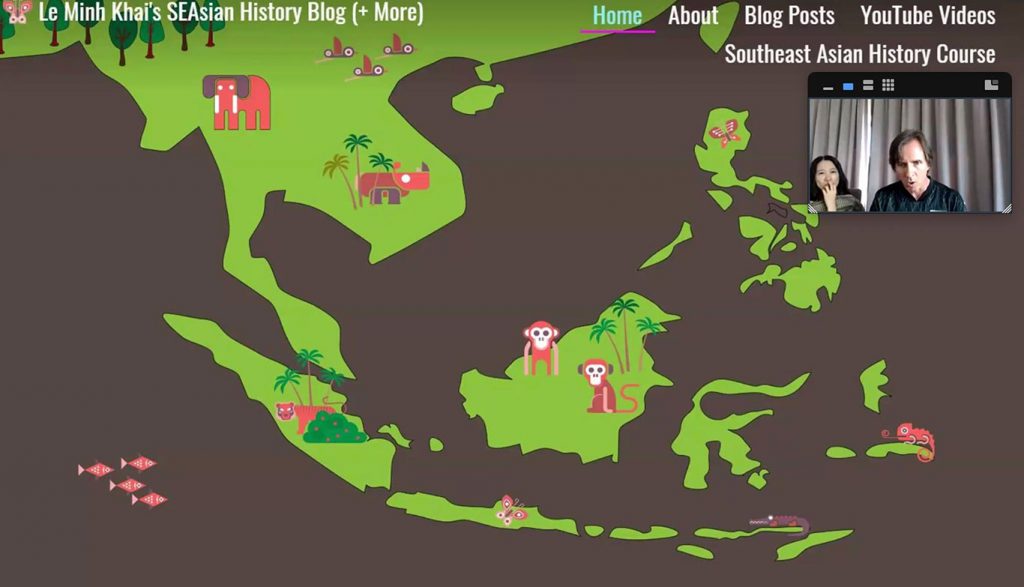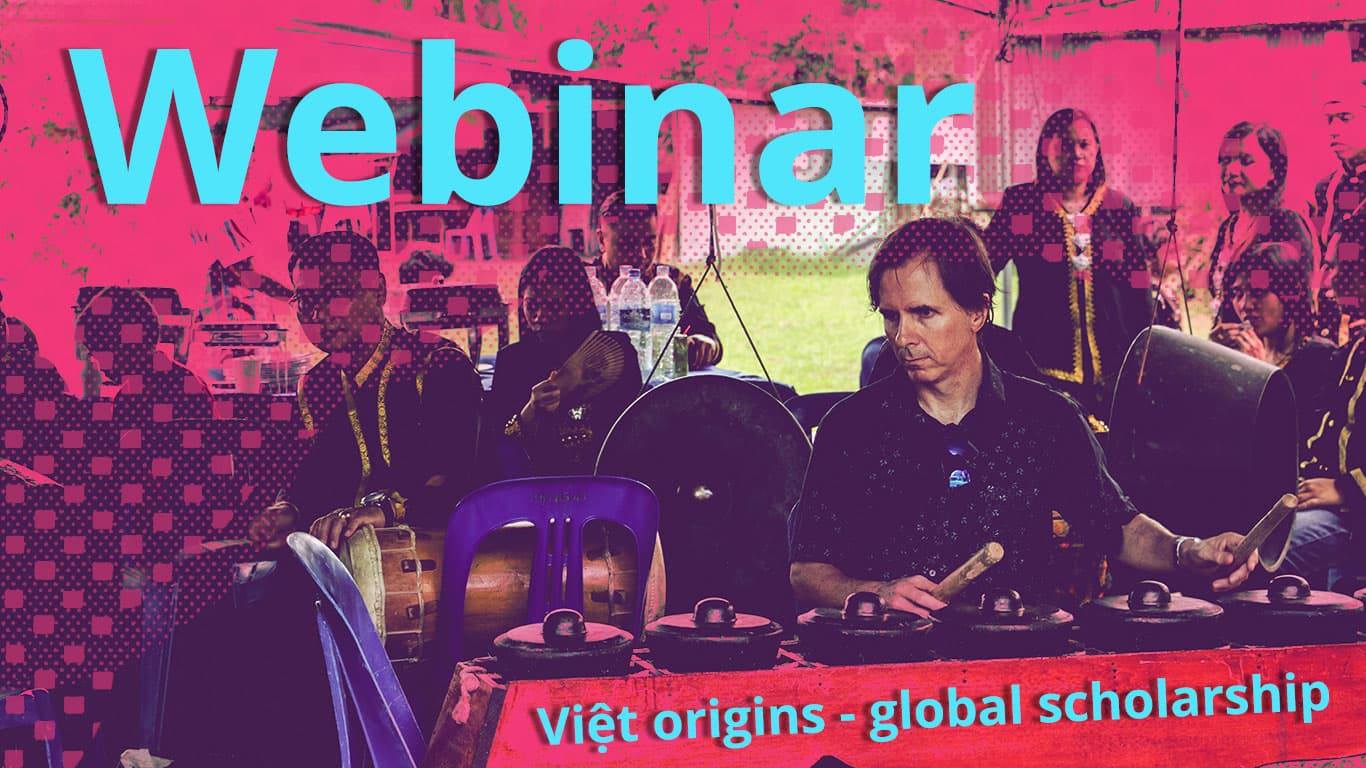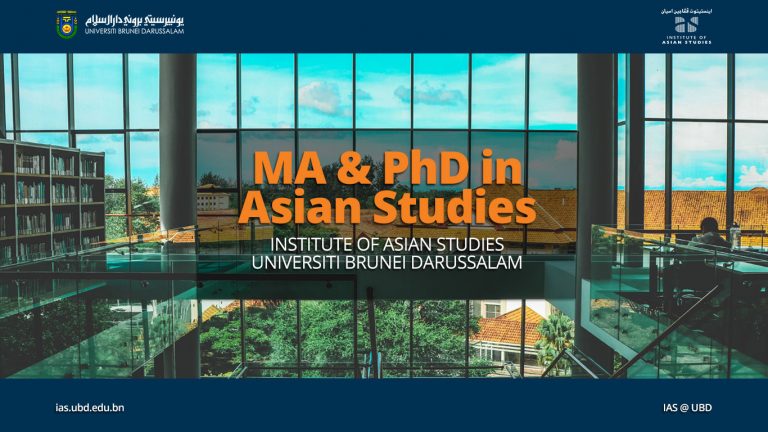Associate Professor Liam C. Kelley of the Institute of Asian Studies at Universiti Brunei Darussalam (IAS @ UBD) presented a webinar on 20 September 2020 on “Việt Origins in Vietnamese and International Scholarship: Unequal Knowledge in the Global Age” as part of “The Vietnam Studies Research Snapshot (VSRS) Webinar Series.”
The VSRS Webinar Series seeks “to foster a global network of Vietnam Studies scholars and students from within and outside Vietnam. . . to connect generations of Vietnam Studies researchers across thematic and disciplinary groups through intellectual debates, networking activities, and mutual support.”
See below for the abstract of Dr. Kelley’s webinar.
For more on this webinar series, please visit the VSRS Webinar Series Facebook page.

Abstract: Where do the Việt come from? This is a question that has been clearly answered by archaeology, linguistics, genetics, and history. However, you will not find the answer to that question in writings by Vietnamese scholars. Instead, you have to read the writings of “international” scholars to learn the answer to that question.
Why is that?
After all, for the past 20+ years Vietnamese universities have been “integrating” (hội nhập) into the global world of scholarship, and today there is a strong push for Vietnamese scholars to publish internationally (công bố quốc tế), and yet, a topic as fundamental as “Who are the Việt?” remains as poorly understood in Vietnam today as it was 30 years ago.
Meanwhile, the Internet in Vietnam is increasingly coming to be dominated by ideas about Việt origins that have been produced by writers who are from outside of academia, but who have nonetheless actively searched for support for their ideas in “international” scholarship.
This talk will examine this phenomenon, and the main issue that this talk will highlight is the complex and problematic relationship between (some) Vietnamese scholars/writers and “international,” or “Western,” scholarship.
On the one hand, in writings on Việt origins, one can see international scholarship presented as a “superior” form of knowledge, but on the other hand, one can also see evidence that neither professional scholars nor the Internet writers fully understand what the leading international scholars for their topic actually argue.
In this talk, the topic of Việt origins will be used as a case study for examining this issue of the relationship between (some) Vietnamese scholars and international scholarship, however, the issues discussed are ones that affect (many) other topics and fields as well.
In sum, in an age when Vietnamese universities are seeking various ways to internationalize (from establishing EMI programs to công bố quốc tế), this is an important issue to consider.





